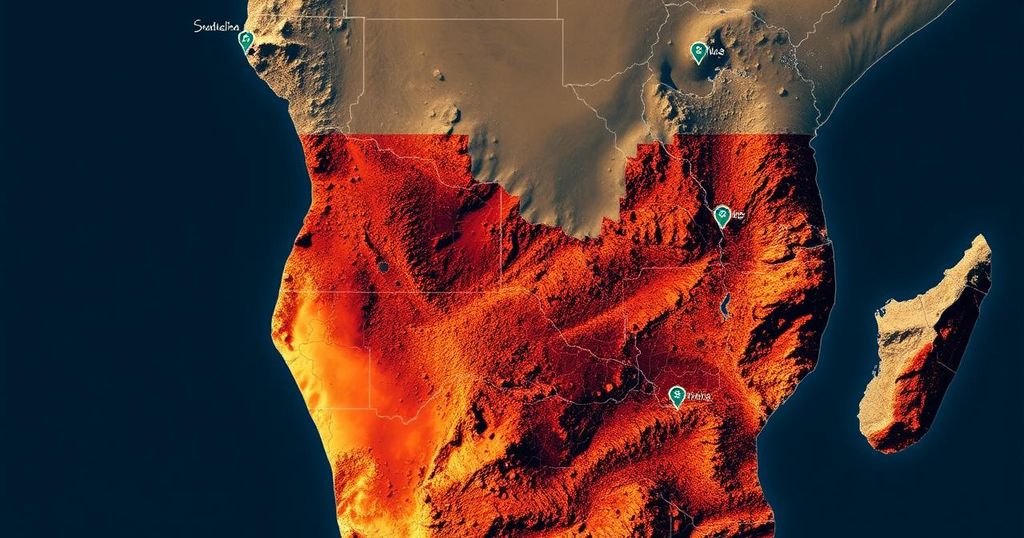Historic Drought Devastates Southern Africa: A Dire Humanitarian Crisis
Severe drought in Southern Africa leads to widespread food insecurity affecting over 27 million people, including 21 million malnourished children. Several nations have declared national disasters due to crop and livestock losses, exacerbated by climate change and El Niño. The crisis is expected to worsen until the next harvests in 2024.
Millions are facing severe food insecurity across Southern Africa as the region grapples with its worst drought in a century. The United Nations has reported that over 27 million individuals have been impacted, with approximately 21 million children suffering from malnutrition. Several countries, including Lesotho, Malawi, Namibia, Zambia, and Zimbabwe, have declared states of national disaster in response to the extensive damage inflicted on crops and livestock. The ongoing crisis, further exacerbated by the effects of the El Niño weather phenomenon and climate change, is anticipated to worsen until the region’s next harvests are expected in March or April of the following year. Reportedly, the drought has resulted in an unprecedented food crisis affecting every aspect of life, with many children receiving insufficient meals daily. Compounding the struggles, the diminished rainfall has severely hindered hydropower production, leading to significant electricity shortages. Conservation measures, such as culling wildlife for food resources, have been implemented in countries like Namibia and Zimbabwe, reflecting the dire situation across the region. Experts indicate that sub-Saharan Africa’s vulnerability to climate change is heightened due to its reliance on rain-fed agriculture, as many communities depend on these agricultural practices for sustenance and economic stability.
Southern Africa is presently contending with a monumental drought that has emerged as an unprecedented challenge for the region. Factors contributing to this crisis include the El Niño weather phenomenon, which has disrupted rainfall patterns, and the overarching impact of climate change, leading to increased temperatures and erratic weather. The region largely relies on rain-fed agriculture, making it particularly susceptible to such climatic adversities. The drought has had devastating effects on food production and livelihoods, prompting declarations of national disasters and urgent calls for humanitarian aid from various countries. Aid organizations have raised alarms regarding the prospects of a humanitarian catastrophe if immediate measures are not undertaken to alleviate the food insecurity affecting millions.
The drought presently devastating Southern Africa has emerged as the worst in a century, impacting the lives of over 27 million individuals, with an alarming number of children experiencing malnutrition. As nations grapple with the dire repercussions of this crisis, there is a pressing need for humanitarian assistance and sustainable measures to build climate resilience in vulnerable communities. The situation underscores the urgent challenges posed by climate change and the critical importance of addressing food security in the face of environmental adversity.
Original Source: www.aljazeera.com




Post Comment